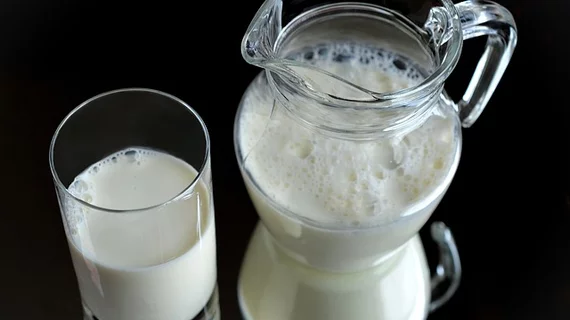Can full-fat dairy do a body good?
Contrary to popular belief, full-fat dairy products are not directly associated with increasing cardiovascular disease (CVD) and stroke mortality, according to a new study published in the American Journal of Clinical Nutrition.
“Although for decades dairy fat consumption has been hypothesized to be a risk factor for CVD, as well as potentially diabetes, weight gain and cancer, little empirical evidence for these effects existed from studies of clinical events,” wrote Marcia Otto, PhD, of the UTHealth School of Public Health in Houston, and colleagues. “In current years, prospective studies have shown generally neutral or protective associations between self-reported dairy foods and dairy fat consumption with the risk of CVD, diabetes, weight gain and cancers, raising questions about this conventional wisdom.”
Otto et al. found no significant link between plasma phospholipid fatty acids—pentadecanoic, heptadecanoic and trans-palmitoleic—and death. The researchers specifically assessed dairy fats' link to heart disease and stroke over a 22-year period.
“Our findings not only support, but also significantly strengthen, the growing body of evidence which suggests that dairy fat, contrary to popular belief, does not increase risk of heart disease or overall mortality in older adults,” Otto said in a prepared statement. “In addition to not contributing to death, the results suggest that one fatty acid present in dairy may lower risk of death from cardiovascular disease, particularly from stroke.”
The researchers evaluated 3,000 adults, aged 65 and older. At baseline, the levels of all three fatty acids were measured in the cohort’s blood and remeasured at 6 years and 13 years.
During the 22-year follow-up, there were 2,428 deaths—including 833 from CVD and 1,595 non-CVD related. There were 1,301 incident CVD deaths.
Otto et al. found the fatty acids in dairy were not significantly associated with mortality, total incident CVD, coronary heart disease or stroke. The researchers found heptadecanoic acid was associated with a 42 percent lower risk of stroke mortality, compared to extreme heptadecanoic acid concentrations. Heptadecanoic acid was also associated with a higher risk of non-CVD mortality but it was not clearly related to a specific type of non-CVD mortality.
“Consistent with previous findings, our results highlight the need to revisit current dietary guidance on whole fat dairy foods, which are rich sources of nutrients such as calcium and potassium,” Otto said. “These are essential for health not only during childhood but throughout life, particularly also in later years when undernourishment and conditions like osteoporosis are more common.”

